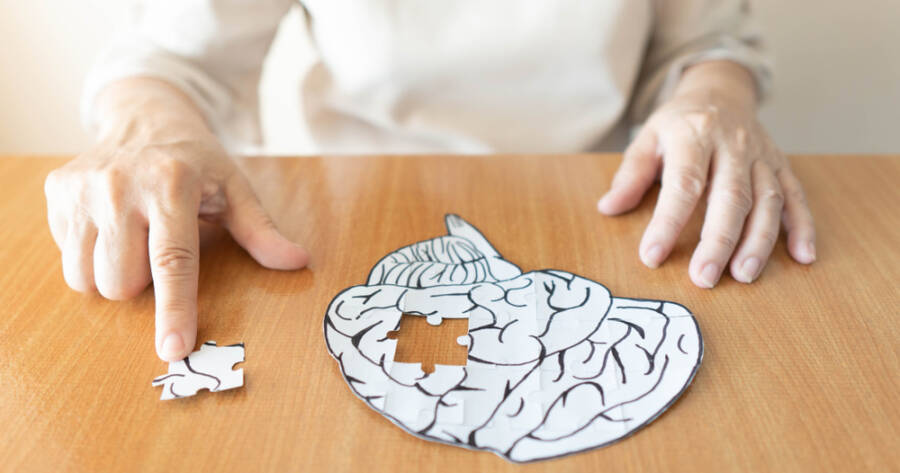Early detection of dementia may not prevent the condition, but it could significantly impact the quality of life for those affected. Being able to recognize the subtle changes in memory, behavior, or cognitive function might offer an opportunity for timely medical consultation and interventions.
Subtle Memory Lapses or Something More?
Memory issues happen to everyone from time to time. Forgetting where you placed your keys, missing an appointment, or momentarily struggling to recall a name are common, everyday occurrences. However, when these lapses begin to occur more frequently or impact day-to-day activities, they could signal something more concerning.
Early dementia signs may manifest as short-term memory loss. A person might forget information they just received or repeat the same question multiple times. This could go beyond typical forgetfulness, as individuals may struggle to recall events that occurred recently, even if they remain able to remember distant memories. Although everyone has moments of forgetfulness, when these moments become persistent or worsen over time, it may be worth considering professional advice.
Besides memory lapses, difficulty finding the right words or following conversations could also be an early indicator of dementia. Some may struggle to keep track of conversations or lose their train of thought more often. While occasional lapses in communication are normal, if a person begins to consistently misplace words or feels increasingly confused in discussions, these could be early signs of cognitive decline.
How Spotting Early Symptoms of Dementia Can Help
Detecting dementia in its early stages could allow for more effective management of symptoms. Early diagnosis, while not offering a cure, may provide families the opportunity to plan for future care needs, make necessary lifestyle adjustments, and even explore therapeutic options that might delay progression. This can be especially critical when considering the emotional and financial impact of dementia as it advances.
Knowing what to look for is key. For instance, struggling to complete familiar tasks can be a red flag. A person who once navigated daily tasks with ease, like preparing meals, handling finances, or managing their schedule, might start having trouble with these routine activities. When this shift happens alongside other symptoms, it may be worth consulting a healthcare professional.
Early detection also opens up conversations about possible medical interventions. Although there is currently no cure for dementia, there are treatments aimed at managing symptoms and improving quality of life. Cognitive therapies, medications, and lifestyle changes, like maintaining a healthy diet or engaging in regular physical and mental activities, could help slow progression in some cases. However, these interventions tend to be most effective when implemented early, underscoring the importance of recognizing symptoms sooner rather than later.
Recognize the Red Flags
Behavioral changes often precede more noticeable cognitive symptoms in individuals with dementia. It is common for early signs to be mistakenly attributed to stress, anxiety, or depression. While these conditions may overlap, certain behavioral shifts could be an early indication of dementia and should be carefully monitored over time.
One of the earliest behavioral indicators is a change in mood or personality. A person may become more easily frustrated or irritable, exhibit sudden mood swings, or show signs of withdrawal from social activities they once enjoyed. Additionally, some individuals may experience increased anxiety or become suspicious of others without clear reason. While these changes could have multiple causes, when paired with cognitive difficulties, they may warrant closer attention.
Another red flag is difficulty with spatial awareness or navigation. People in the early stages of dementia may struggle with depth perception or understanding visual cues, leading to challenges with driving, misjudging distances, or frequently bumping into objects. This spatial confusion may manifest in ways that initially seem minor but become more pronounced as the condition progresses.
Similarly, misplacing things and having difficulty retracing steps can be an early sign of dementia. A person may put items in unusual places, such as placing car keys in the fridge or leaving a phone in the bathroom, and then be unable to recall how they got there. Over time, this confusion can extend to larger situations, like getting lost in familiar environments.
Lastly, changes in judgment and decision-making abilities are often overlooked in the early stages. A person may begin to make poor financial decisions, fall victim to scams, or make inappropriate choices that are uncharacteristic of their previous behavior. If someone begins acting out of character in this way, it’s crucial to consider the broader context of their health and well-being.
The Importance of Early Medical Consultation
If you notice any of these signs in yourself or a loved one, seeking medical advice is essential. A healthcare professional can conduct a thorough evaluation, which may include cognitive tests, brain imaging, and blood work, to rule out other causes of these symptoms and determine if dementia may be a factor.
Keep in mind that these symptoms do not always mean dementia is present, as other medical conditions can sometimes mimic its early signs. Nonetheless, early detection allows for better planning and management of symptoms, making a significant difference in the individual’s long-term care.
Find Help Today
Spotting the early signs of dementia can be challenging, especially when many symptoms can be mistaken for normal aging or other health issues. However, recognizing potential red flags such as memory lapses, changes in behavior, or difficulty completing familiar tasks may provide an opportunity to seek early intervention.
While there is no guarantee of slowing dementia’s progression, being proactive may allow individuals and their families to make informed decisions about treatment, lifestyle changes, and future care. Early detection could offer a better chance at maintaining quality of life for as long as possible.

